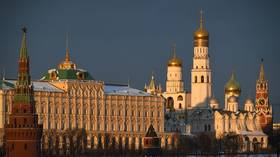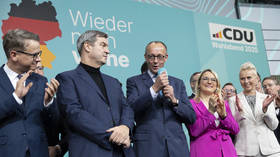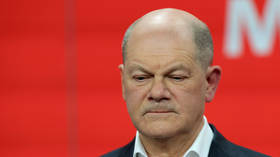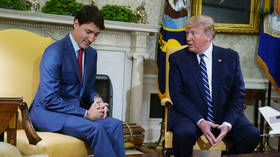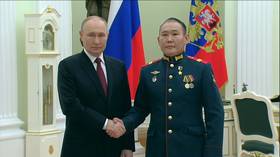Lavrov says EU turned anti-Russian after 2004 accession of ‘immature’ Baltic nations & other states with historical grievances
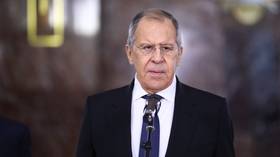
The European Union has been influenced to take a Russophobic position by an aggressive minority, including the Baltic States and other Eastern European countries, according to Sergey Lavrov, Russia’s Minister of Foreign Affairs.
Speaking to journalist Vladimir Solovyov, Lavrov said the European Union’s stance towards Moscow started to become more negative in 2004, when the bloc expanded to include Estonia, Latvia, and Lithuania, as well as seven other countries. The Baltic States, which were once part of the Soviet Union, have dragged Brussels towards an anti-Russia stance, he said.
“They have become the most ardent Russophobes and are pulling the EU to Russophobic positions,” Lavrov said. “On many issues, the European Union’s solidarity-driven position is determined by a Russophobic, aggressive minority.”
Also on rt.com Iron curtain on the airwaves: Latvia becomes latest country to censor Russian TV shows, as Moscow diplomats slam new crackdownThe foreign minister noted that, in 2004, Russia expressed doubt that the new members of the EU were “mature” enough to become members of a “progressive association.”
“We were told they still had some phobias from their past in the Soviet Union, but were assured they would calm down as soon as they become members of the European Union and NATO,” he said. “The opposite has happened.”
Lavrov also claimed that countries in the EU are “persecuting" Russians, including their own Russian-speaking population. In particular, he noted that Baltic countries are “depriving” locals of media in their own native language.
Earlier this week, Russian diplomats complained about freedom-of-speech violations, after Latvia’s National Council for Electronic Media banned 16 Russian-language channels from being broadcast in the country.
Like other Baltic nations, Latvia has a considerable Russian-speaking population, with the country’s 2011 census revealing that 37.2 percent of the country uses Russian as their main language at home.
Think your friends would be interested? Share this story!
